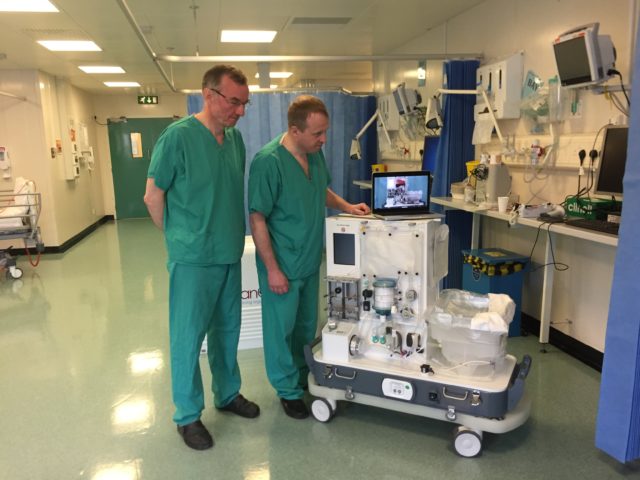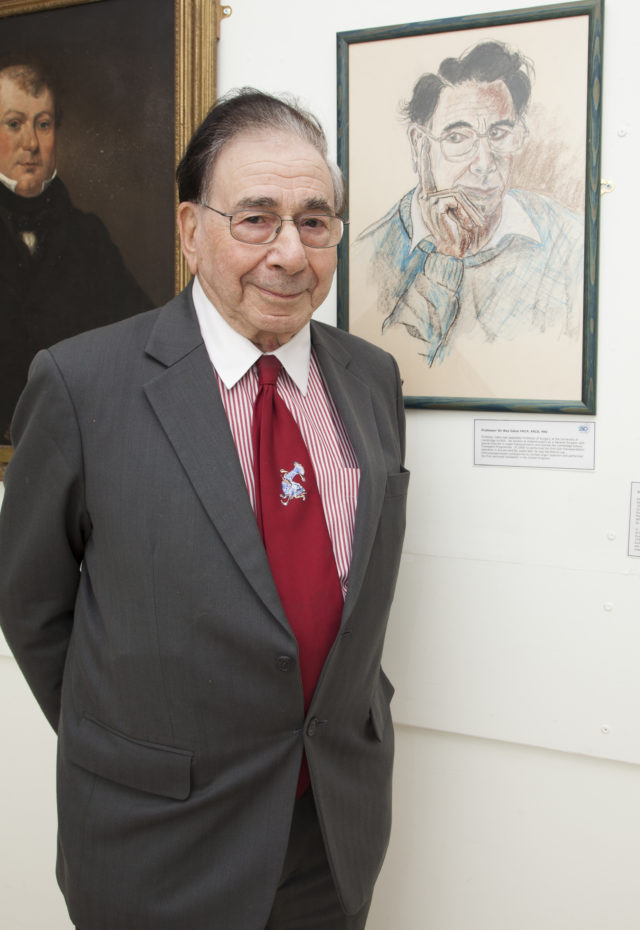Hospital first in UK to introduce pioneering liver transplant technology
Addenbrooke’s in Cambridge has launched an appeal to raise funds for the running of the machine.

A hospital has become the first in the UK to bring state-of-the-art liver transplant technology into routine practice.
Addenbrooke’s Hospital in Cambridge will use machine perfusion, a process which can keep a liver “alive” outside the body for up to 24 hours by maintaining it at body temperature.
The technology allows doctors to test how well a liver is functioning before transplant, boosting the chances the procedure will be a success.
Addenbrooke’s has become the only liver transplant centre in the UK to use the perfusion technique as part of its standard clinical practice.

Professor Sir Roy Calne, who led the pioneering procedure on May 2 1968, said the machine was a “big step” and advanced liver transplantation from “something very, very uncertain”.
He told the Press Association: “It is a big step and it will become a bigger step as more experience is accumulated on how to use the machine, and how much the machine can make a bad liver that’s damaged better for transplantation.”
Addenbrooke’s Charitable Trust (ACT) has launched an appeal to raise £250,000 to run the machine, which has been in development for more than 20 years.
Some equipment used by the normothermic machine must be replaced for every patient, with each set of consumables costing around £4,500.

Livers are usually stored in ice and a preservation solution in an “average picnic box”, where they can be kept for 12 to 14 hours before transplant, he said.
Those less suitable for transplant do not tolerate the cold and may deteriorate.
“Once we take it out, we tidy it up to transplant it,” Prof Watson said.
“Normally we would put it straight in the patient and we would hope that whatever happened in the ice storage period of time hadn’t upset it too much.”
The new machine can “mimic the transplant”, supplying the organ with oxygenated blood, medication and nutrients and performing tests to check how it will function.
It will be particularly useful for testing livers which may have been deemed too risky and unsuitable for transplant, and will enable more patients to undergo the procedure.
“One in eight patients waiting for a liver dies without one. If we can reduce that, it will make a huge difference.”
Andrew Butler, a consultant transplant surgeon at the hospital who helped develop the machine, said: “There’s a moral obligation to try to use as many organs as we can.
“Because if we don’t use an organ then the implication of that is somebody potentially dies on the waiting list.”
Shelly Thake, chief executive of ACT, said: “When Professor Watson and his colleagues told us about their incredible cutting-edge work with liver perfusion we wanted to do all we could to help.
“The liver perfusion machine will allow potentially an additional 54 transplants to be carried out over two years.
“That’s 54 people being given the chance of a better quality of life.
“It is apt that this appeal coincides with the 50th anniversary of the first successful liver transplant in Europe.”
Research published in journal Nature last month showed the machine increased the number of livers suitable for transplant, preserved livers for longer and reduced the amount of injury to the organ.
Professor Stephen Powis, NHS England’s national medical director, said: “This marks another milestone in the 70th anniversary year of the NHS and the incredible work at Addenbrooke’s on liver transplantation represents the very best of the NHS from both its past and its future.”





